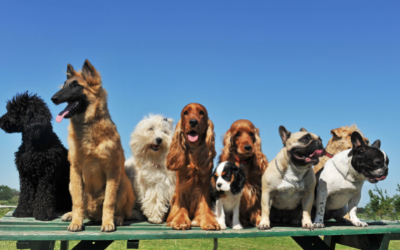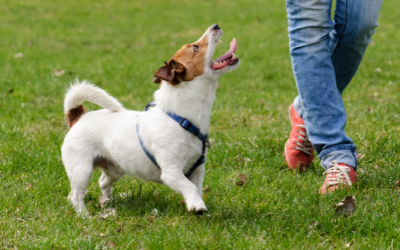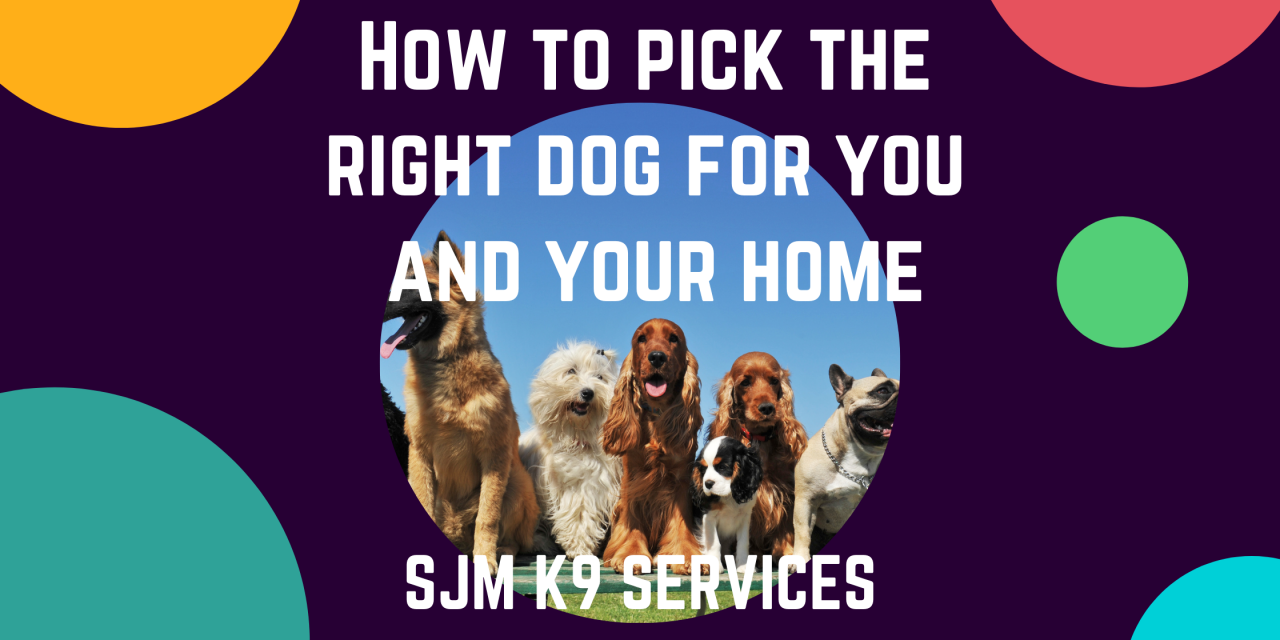Finding your perfect match in a dog will help you avoid issues for both you and your new dog. Your dog isn’t just for Christmas – it’s for life.
The following article was written in collaboration with dog psychology and training professional, Steven Murphy of Thame-based SJM K9 Services, and will help you ask the right questions to find the right dog for you.
How to pick the right dog for your home
There are many reasons people end up with a dog that doesn’t suit them, and even give the animal up for adoption – but this can be avoided. The number one reason in my experience is a lack of breed understanding.
Many argue that it’s how a dog is raised and not the breed – which in part is true, but genetics also play a vital part in how well a dog will cope in a given environment. There is a reason Greyhounds race and German Shepherds make great police dogs. As tempting as it is, the biggest mistake you can make when selecting a dog is picking based on appearance alone.
Do your homework when it comes to breeds
If you’re at work all day and can’t dedicate numerous hours to training and exercise each day don’t get a Belgian Shepherd. On the flip side, are you always active and want your dog to accompany you on long walks? If so, don’t get an English Bulldog or similar.

Whether looking to adopt a rescue dog or are considering a puppy, the same logic applies. If you’re not sure what type of dog would suit your lifestyle then ask an experienced dog trainer.
With the right breed selection and training structure you can make sure the needs of you and your dog are met – this will ensure you have a devoted loyal friend for life.
Questions to ask yourself when selecting your new dog
- How will this dog affect my life?
- Do I have the right skills and knowledge to support this dog?
- How much time does this breed need for exercise to be happy and healthy?
- How much time does this breed need for mental stimulation for good well-being?

Training for rescue dogs and puppies
In the next article in this series, I’ll cover some training tips but for now, just know that whether you opt for a rescue dog or puppy, both need a training routine to ensure they are happy, well-balanced and get the mental stimulation they need.
The time you have available must play a part in deciding to bring a dog into your home. Some dogs are easier or take longer to train than others, so that’s another reason to do your research when it comes to breeds.
Advantages and things to consider if adopting a rescue dog
Rescue centres often have a wide selection of breeds, often mixed breeds, to choose from. There are lots of pros and cons when it comes to adopting a rescue dog, but from my perspective, the pros massively outweigh the cons.
Advantages of adopting a rescue dog
Rescue dogs are usually there through no fault of their own so giving them a loving home gives you an amazing feeling and can be very satisfying.
Many rescue dogs, especially from a reputable organisation, have already undergone training and temperament tests before being put up for adoption. So one big advantage of finding the right dog from a rescue centre is that you can skip all of the puppy biting, toilet training and chewing furniture.
Lots of rescue centres also cover/help with medical expenses that may arise with the dog. This usually also includes microchipping, health checks, vaccinations and neutering.
I would personally recommend adopting a retired greyhound as they are generally a loving and affectionate breed and love to cuddle up on the sofa. Again – do your research and talk to an experienced dog professional to make sure you make an informed decision based on the considerations listed above.
Things to consider when adopting a rescue dog
It is very very important that you do all your research first which can be difficult with a mixed breed as it’s hard to know what part of what breed the dog will take after, but write down a list of questions and any reputable rescue centre will definitely answer them for you.
A few good questions to ask are
- How much exercise does this dog need?
- Do they show any signs of resource guarding?
- Do they show any signs of separation anxiety?
- Have they been well socialised around dogs and people?
You must keep in mind that you will need to allow decompression time when you first bring your new companion home. The length of time will depend on things like how long they have spent in the kennel environment, but as long as you are patient and allow the dog to settle in they will be an amazing addition to your home. Any reputable rescue charity will happily support you through the whole process of settling in the dog.
In an ideal world, you would be able to go and meet your chosen dog but due to lots of restrictions, many rescue centres aren’t offering this anymore. Therefore it is even more important to look at a reputable rescue centre that can give you the right support and answers to your questions.
In summary
There are horror stories out there regarding adopting rescue dogs, but if you do your research then I assure you there are far more positives to outweigh the things you need to consider.
Adoption or puppy – the same considerations apply as outlined above. Do your research and pick your dog based on breed fit with your lifestyle and not on their appearance. Make sure you consider training and the time needed from you to maintain a happy home and hound.
Good luck with your search for your new companion!
About the author – SJM K9 Services
Steven Murphy has extensive experience with dog psychology and training. Based in Thame, Steven owns SJM K9 Services and provides professional dog training from puppy through to advanced obedience.

Steven has helped many families overcome dog behaviour challenges by helping them to understand the dog’s needs and respond with the correct level of balanced training. Training can be on a one-to-one basis but there are also group training sessions on offer.
To learn more, visit the website.
To view videos of some training in action, visit the Facebook Group.











